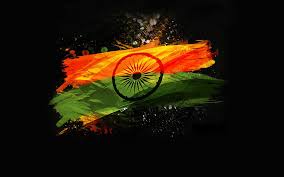POWER TO CALL ARMY IN INDIA :
■ Who can call army in India / Who has the authority to call in army for controlling a riot ?
Public order and police are under the state list. Section 129 & 130 of CrPC give the Executive Magistrate certain powers relating to “unlawful assembly”.
If a group is found in unlawful assembly under Section 129 CrPC, the Executive Magistrate can issue orders to these persons to disperse. Section 130 CrPC (Criminal Procedure Code) empowers the Executive Magistrate to requisition the aid of the Army .
The state government may request the Union government to make available armed forces to help restore public order.
In states when there is a breakdown of law and order, for example in case of a riot or natural calamity, then the district magistrate can approach the military commander of the area.
The army in such cases has Limited purpose of dispersing an “unlawful assembly” and arresting its members.
■ The Peculiar case of Delhi:----Article 239 AA and 239 AB of constitution and the NCT Act of 1991 gives the NCT of Delhi a special status.
▪ Article 239 AA gives powers of law-making and administration to an elected legislature and the council of ministers. Public order and police, though are directly under the Union government(Home ministry).
▪ The Exception Section 129 & 130 of CrPC give the Executive Magistrate certain powers relating to “unlawful assembly”.
▪ In Delhi, the revenue department, and hence the Executive Magistrate, is under the Delhi government)
▪ If a group is found in unlawful assembly under Section 129 CrPC, the Executive Magistrate can issue orders to these persons to disperse. If this fails, the magistrate can use the civil force--- The Police.
■ What if the Police fail to do the job?:----'The Executive Magistrate, under Section 130 CrPC, can call an officer of the armed forces of the Union to disperse the assembly.
▪ This section states that it can be invoked for “public security”.
▪ Thus, for the Army to be called in, a formal request has to be made by the District Magistrate of the affected area.
▪ The officer of a Union armed force must comply with a requisition made to him by the Executive Magistrate..
■ How much ‘Force’ can Armed forces use?:--Section 130 CrPC empowers the officer to decide, on his own, the manner in which the unlawful assembly has to be dispersed by forces under his command.
• The third sub-section of Section 130 states that the armed forces shall only use a “little force”.
• “Every such officer of the armed forces shall obey such requisition in such manner as he thinks fit, but in so doing he shall use as little force, and do as little injury to person and property, as may be consistent with dispersing the assembly and arresting and detaining such persons”.
■ Should army be called in for controlling riots?
Army is the last resort and should only be called when everything else has failed.
▪ Calling the army at the first instance itself reduces its effectiveness .
▪ It gives a signal to the police force - The govt has lost trust in Police.
▪ Army is not trained nor equipped to deal with civil population EXCESSIVE use of force. Army - non political, non religious and trusted institution.





Comments
Post a Comment